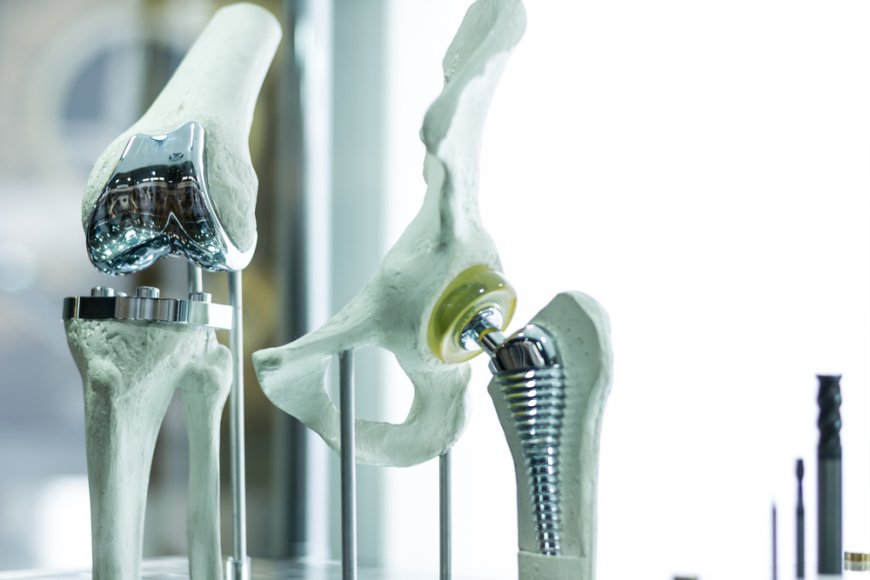The Impact of Age on Hip and Knee Surgery Outcomes in Karachi
Discover how age affects hip and knee surgery outcomes in Karachi. Learn about tailored surgical approaches, recovery differences, and the importance of specialized care for various age groups.

When considering hip and knee surgery, one of the most significant factors influencing outcomes is the age of the patient. In Karachi, as in many parts of the world, age plays a crucial role in determining not only the surgical approach but also the recovery process and long-term results. This blog will delve into how age impacts the outcomes of hip and knee surgeries, highlighting the importance of tailored care for different age groups.
1. Understanding the Surgical Context
Hip and knee surgeries, such as total joint replacements or arthroscopic procedures, are often performed to relieve pain and restore function in patients with conditions like osteoarthritis, rheumatoid arthritis, or post-traumatic injuries. The choice of procedure and expected outcomes can vary significantly based on the patient's age.
2. Outcomes in Younger Patients
a. Faster Recovery: Younger patients tend to recover more quickly from hip and knee surgeries. Their bodies generally heal faster due to better overall physical fitness, higher metabolic rates, and fewer comorbidities.
b. Higher Activity Levels: Younger patients often have more active lifestyles and may be more motivated to adhere to rehabilitation protocols, leading to improved surgical outcomes.
c. Longevity of Implants: Younger individuals typically require a longer lifespan from their implants, which can be a consideration when selecting surgical techniques and materials.
3. Challenges for Older Patients
a. Comorbidities: Older patients often present with multiple health issues, such as diabetes, hypertension, or cardiovascular problems, which can complicate surgical procedures and recovery. These comorbidities may increase the risk of complications during and after surgery.
b. Slower Recovery: The healing process for older adults can be slower due to decreased bone density, reduced muscle mass, and other age-related factors. This can affect their rehabilitation and delay the return to daily activities.
c. Higher Risk of Complications: Older patients may face a higher risk of postoperative complications, including infections, blood clots, and delayed wound healing, necessitating careful preoperative assessment and management.
4. Tailored Surgical Approaches
Surgeons in Karachi increasingly recognize the need for age-specific approaches to hip and knee surgeries.
a. Preoperative Assessment: Comprehensive preoperative evaluations that consider a patient’s age, overall health, and activity level are crucial. This ensures that the surgical approach is tailored to individual needs.
b. Minimally Invasive Techniques: For older patients, minimally invasive techniques may be preferred to reduce recovery time and minimize complications. These approaches can lead to less pain and quicker rehabilitation.
c. Customized Rehabilitation Plans: Rehabilitation protocols should be adjusted based on the patient's age. Younger patients may focus more on returning to sports or higher activity levels, while older patients might prioritize functional mobility and pain management.
5. The Role of Patient Education
Educating patients about the implications of age on surgery outcomes is vital. Patients should be informed about the importance of adhering to rehabilitation, lifestyle modifications, and managing comorbidities to enhance recovery and long-term outcomes.
Conclusion
Age is a significant factor influencing the outcomes of hip and knee surgeries in Karachi. While younger patients may benefit from quicker recoveries and more active lifestyles, older patients face unique challenges that require tailored surgical approaches and rehabilitation strategies. By understanding these age-related factors, both patients and healthcare providers can work together to optimize surgical outcomes, ensuring that individuals of all ages can return to their daily activities and enjoy a better quality of life. Whether you are young or older, consulting with an experienced orthopedic surgeon can help you navigate your options and achieve the best possible results.

 Anokshi kumari
Anokshi kumari